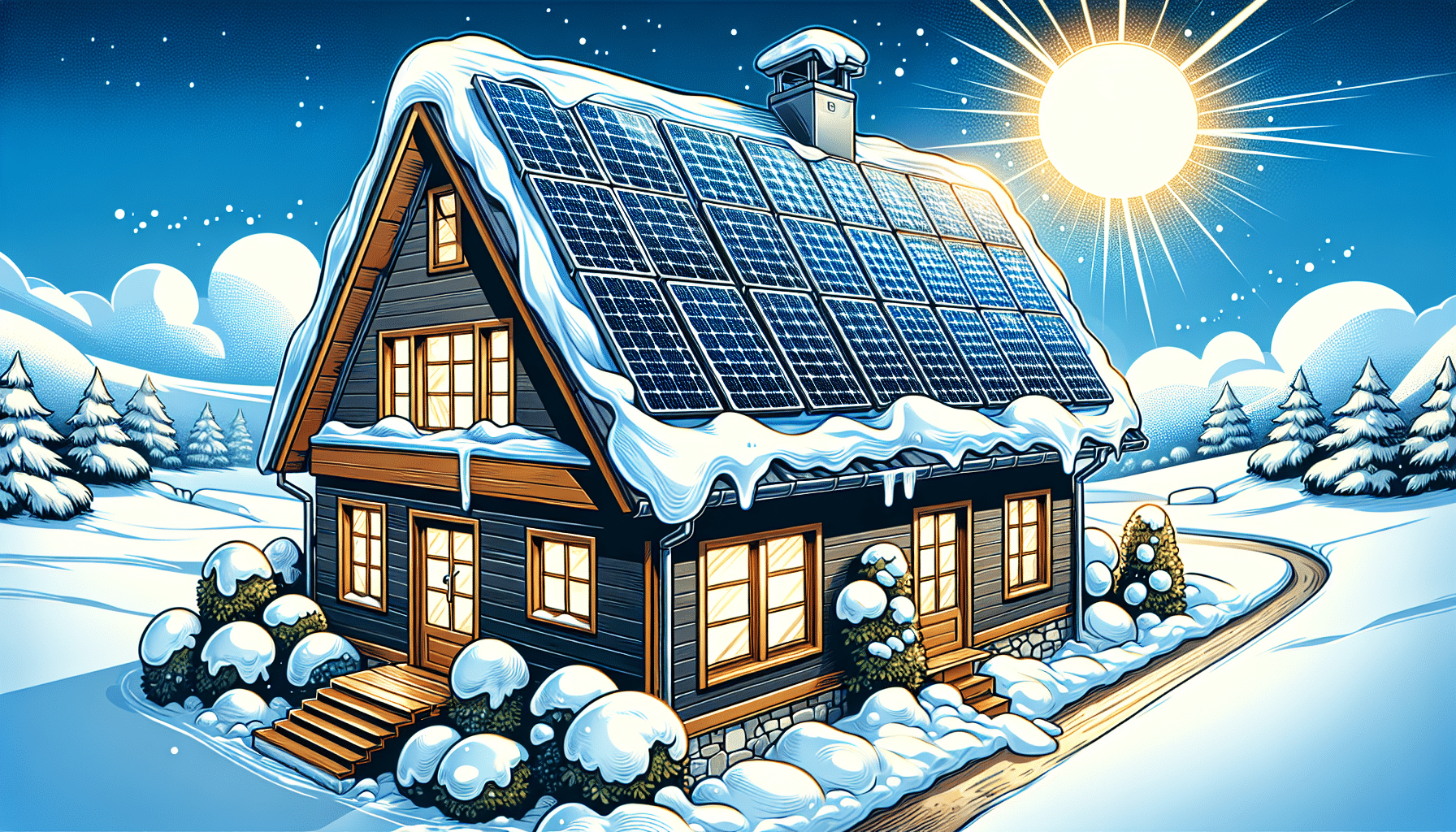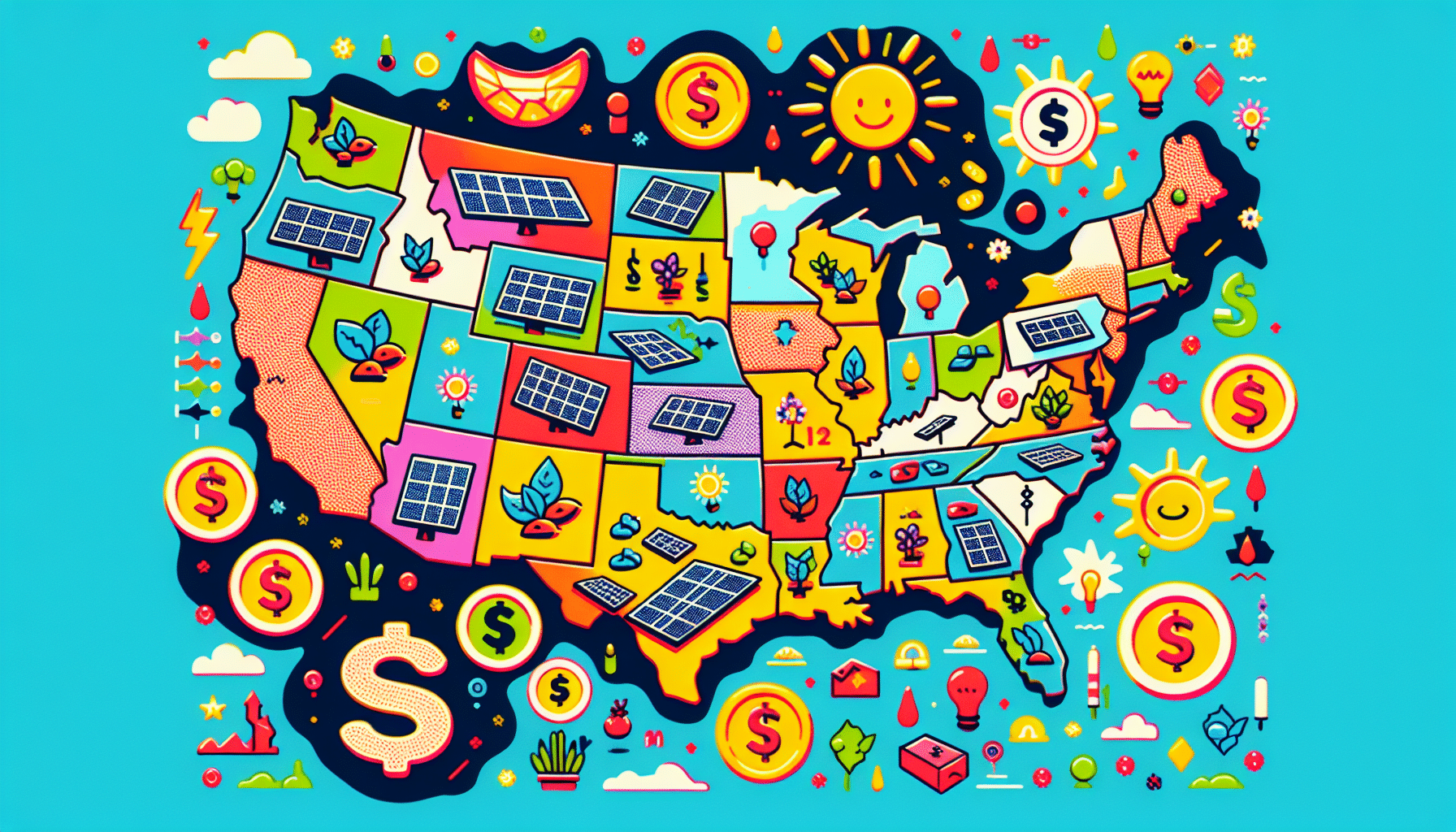Key Takeaways
- Solar panels are efficient in winter, producing energy even in cold temperatures and overcast conditions, thanks to their ability to harness diffuse light.
- Snow can enhance solar panel performance by reflecting sunlight, and careful management of snow accumulation helps maintain optimal production.
- Adjusting panel tilt, ensuring regular maintenance, and optimizing battery storage can significantly improve solar energy output during the winter months.
How Solar Panels Work in Winter
Grasping how solar panels function during winter is essential. Solar panels produce electricity by converting sunlight. This process occurs through photovoltaic cells. Contrary to popular belief, they don’t rely on the sun’s heat but on its light. This means that even in extremely cold temperatures, solar panels can effectively produce electricity.
However, winter does pose some challenges. Shorter daylight hours and potential snow cover can reduce the amount of sunlight that reaches the panels, impacting their efficiency. Even so, solar panels can still supply around half of a home’s energy needs during winter, proving their viability for sustainable energy. Acknowledging these limitations and adjusting accordingly is important.
During winter, solar panels can capture sunlight even on overcast days due to the ability of solar cells to absorb diffuse light. This means that even when the sun isn’t shining brightly, your solar panels are still working to generate electricity. The efficiency might be lower compared to summer, but with proper maintenance and strategic positioning, you can still achieve significant solar energy output during the winter season.
Impact of Winter Weather on Solar Panel Efficiency
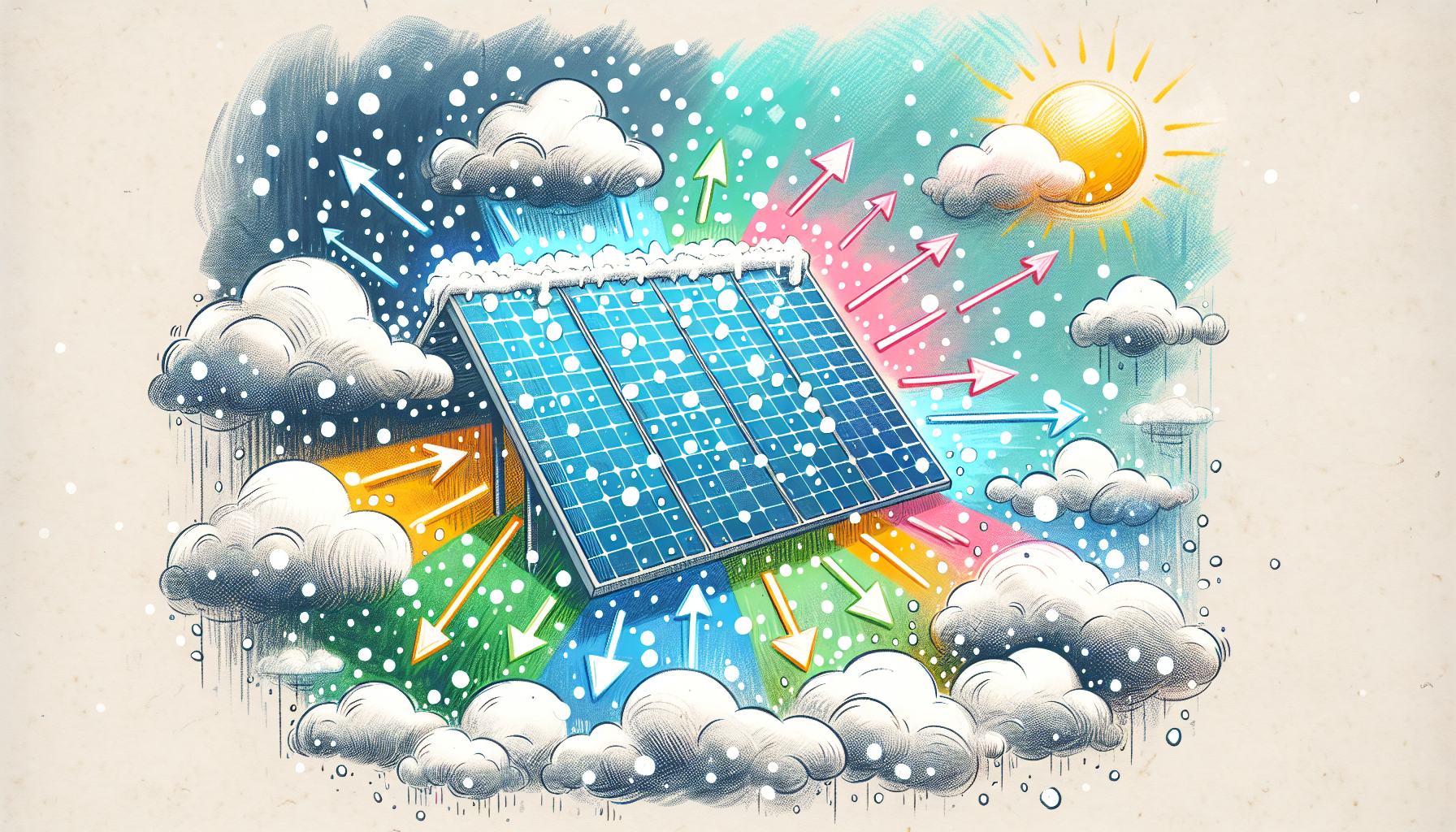
Winter weather has a mixed impact on solar panel efficiency. On one hand, colder temperatures can actually enhance performance because solar panels are less likely to overheat. This can lead to increased energy production compared to warmer months. On the other hand, shorter days and potential snow cover can reduce the amount of sunlight that panels can capture, leading to a decrease in solar output by approximately 20-35%.
The sun’s lower position in the sky during winter means that solar panels capture less direct sunlight. However, diffuse light from clouds and rain can still penetrate and allow the panels to generate electricity, albeit at reduced levels compared to direct sunlight. This means that even in overcast conditions, your solar panels are still hard at work, converting solar power into electricity.
One of the surprising benefits of winter is that snow can actually reflect additional sunlight onto the panels, enhancing their energy generation. This phenomenon, known as the albedo effect, can help mitigate some of the losses caused by shorter daylight hours and lower sun angles. Recognizing these dynamics allows for better management of solar panel performance in winter.
Benefits of Solar Panels in Winter
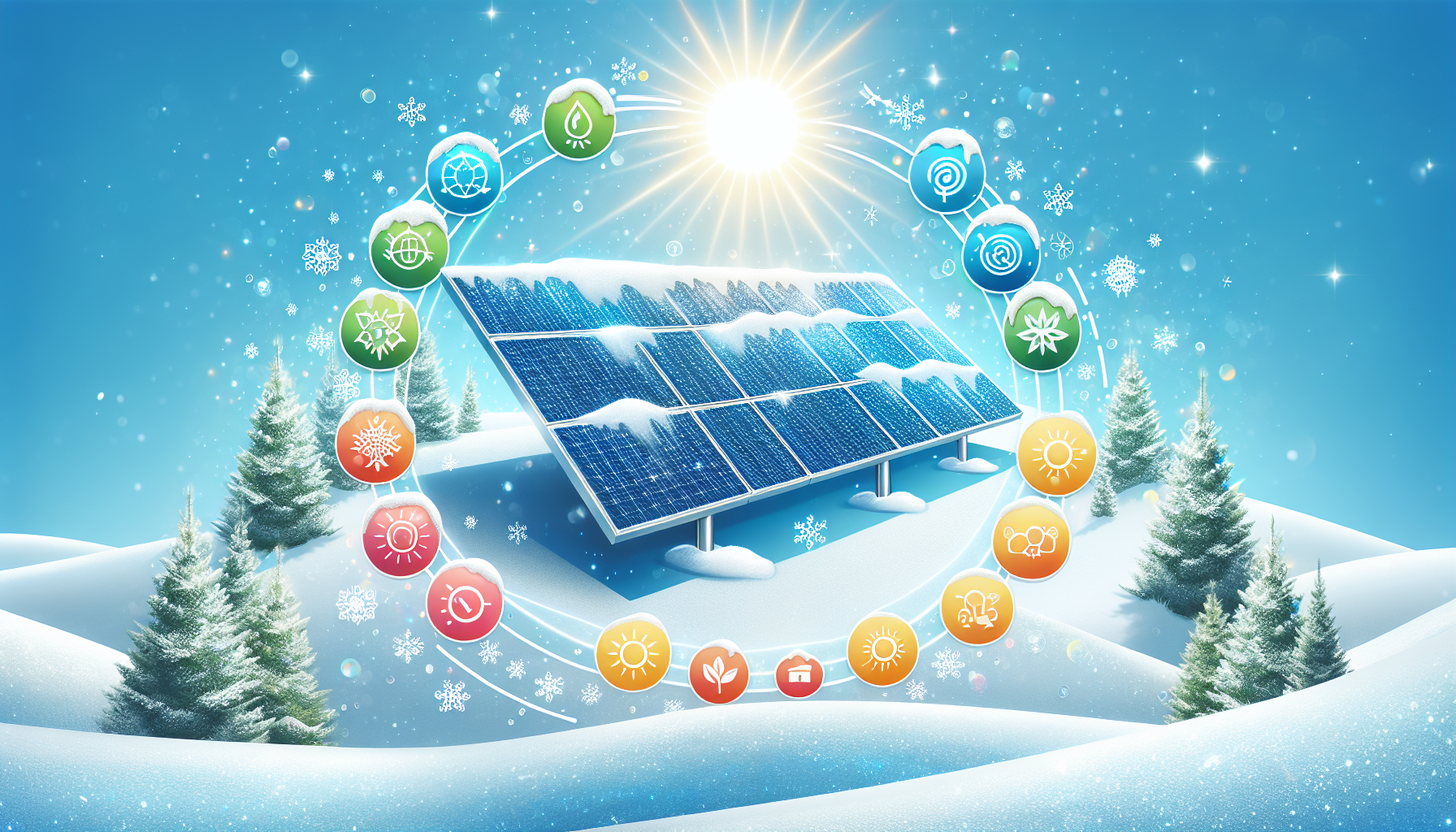
Winter might seem like a challenging time for solar energy, but it offers several unique benefits. For starters, colder conditions can enhance solar panel efficiency. Unlike in summer, when high temperatures can lead to overheating and reduced performance, winter’s cooler temperatures allow the panels to operate more efficiently. This can result in better energy production during the cold months.
Another significant benefit is the financial savings. Solar panels help reduce energy costs, which is particularly advantageous when fuel prices tend to rise during winter. Moreover, having a solar system with battery backup ensures energy availability during winter power outages, providing you with peace of mind and energy independence.
Lastly, winter solar panels contribute to a sustainable future by harnessing a renewable energy source. Despite the challenges posed by shorter daylight hours and potential snow cover, solar panels can still produce a significant amount of electricity, making them a worthwhile investment even in the winter months.
Dealing with Snow on Solar Panels
Snow on solar panels is a common concern, but it doesn’t have to be a deal-breaker. While heavy snow can block sunlight and reduce electricity generation, a light layer of snow can still allow sunlight to reach and energize the solar cells beneath.
Moreover, the reflective quality of snow can increase the amount of sunlight that hits the panels, enhancing energy production. The key is to manage snow accumulation effectively.
Effects of Snow on Electricity Generation
Snow accumulation can impact the ability of solar panels to generate electricity by blocking sunlight. Heavy snowfall can significantly reduce power generation, but solar panels are designed to withstand such conditions. Interestingly, even when covered with a thin layer of snow, solar panels can still produce electricity due to light scattering.
Letting snow melt and slide off naturally is usually best, avoiding unnecessary panic. This natural process ensures that your solar panels will resume optimal performance without the risk of damaging them through improper snow removal techniques.
Best Practices for Snow Removal
When it comes to snow removal, safety and efficiency are paramount. Using a roof rake is recommended for safely clearing snow from the area beneath solar panels. Using appropriate tools is essential to avoid damaging the panels. Avoid using metal rakes, as they can scratch and harm the surface of the panels.
Regularly checking for snow accumulation ensures timely action and maintains optimal panel performance. By following these best practices, you can keep your solar panels clear and functional throughout the winter season.
Maximizing Solar Energy Output in Cold Weather
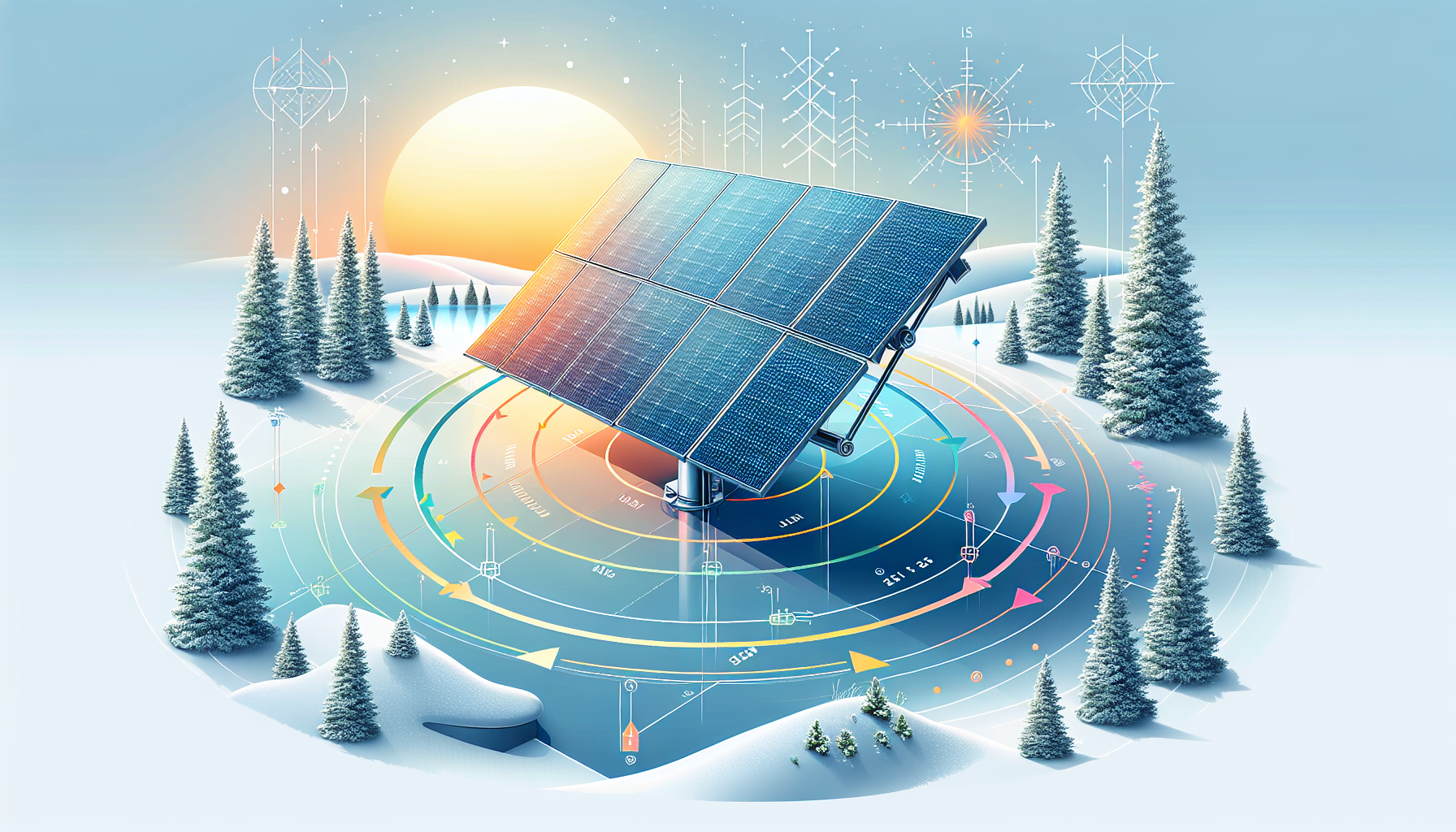
A few key strategies can help maximize solar energy output during cold weather. From adjusting the tilt and orientation of the panels to regular maintenance and optimizing battery storage, these practices ensure that your solar panels continue to perform efficiently even in the harshest winter conditions.
Adjusting Tilt and Orientation
One effective strategy is to adjust the tilt and orientation of your solar panels. Tilting them to a steeper angle during winter can significantly increase sunlight capture due to the lower sun path. Positioning the panels to face true south can also improve sunlight capture.
Incorporating dual-axis or single-axis tracking systems can further optimize energy collection by allowing the panels to follow the sun throughout the day. These adjustments help ensure that your solar panels receive maximum sunlight during the shorter daylight hours of winter.
Regular Maintenance and Cleaning
Regular maintenance and cleaning are crucial for ensuring optimal solar panel performance. Removing dirt and dust helps improve efficiency, especially during winter precipitation. Cleaning the panels regularly is important. This is especially true after snowfall, as it allows them to absorb maximum sunlight.
To safely remove snow, consider the following methods:
- Let it melt or slide off naturally.
- Hire specialized snow removers for heavy snow.
- Use a soft brush or a gentle stream of water to avoid damaging the panels.
- Avoid using metal rakes to prevent scratching the surface.
Optimizing Battery Storage
Optimizing battery storage is essential during winter months when sunlight is limited. Storing energy during the day ensures a consistent energy supply during peak demand or when sunlight is insufficient.
When solar energy output declines, adjusting how and when appliances are used can help manage energy supply effectively. This approach helps you save less energy and reduce your energy bill.
Cold Weather Performance of Solar Panels
Solar panels often perform better in cold weather due to improved conductivity in silicon, allowing for increased energy production. Colder temperatures reduce the risk of overheating, which can enhance efficiency compared to warmer months. This means that your solar panels can generate more electricity in winter than you might expect.
Even in freezing temperatures, solar panels can continue to operate effectively because they absorb light energy, not heat. Snow can also improve efficiency by removing dust and dirt from the surface of the panels.
Research indicates that solar panels can continue to function well in harsh winter conditions, such as those in Alaska. This demonstrates that with the right setup and maintenance, solar panels can be a reliable source of energy even in extremely cold climates.
Preparing Your Solar System for Winter
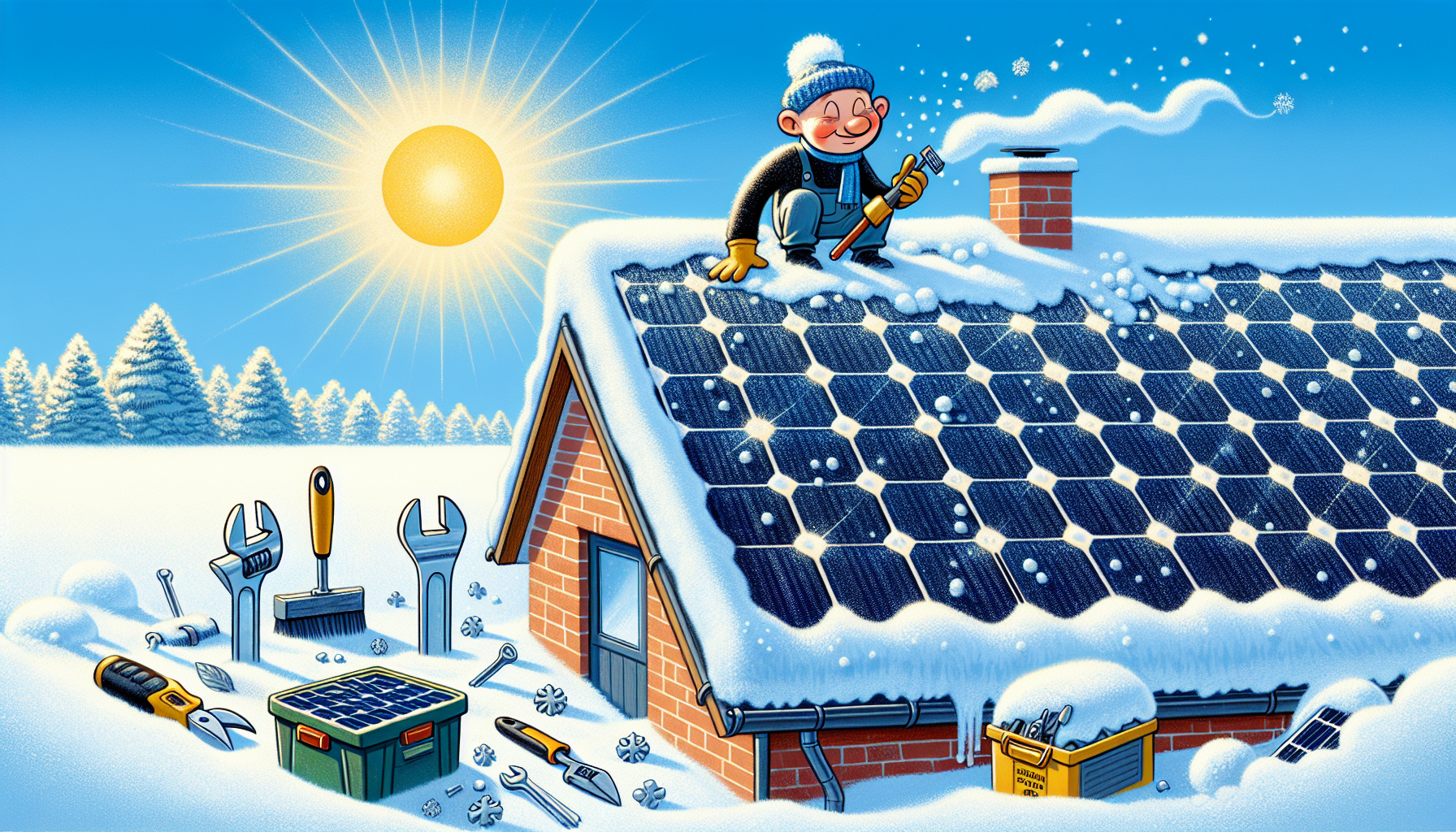
Preparing your solar systems for winter involves careful planning and strategic measures. Solar panels provide energy independence, decreasing reliance on the electrical grid, especially during unpredictable winter weather. This can lead to significant financial savings, as they help reduce energy costs when traditional fuel prices rise in winter.
Taking measures like optimizing battery storage and keeping panels clean can significantly enhance solar panel performance during winter. Regular monitoring of the system’s energy output is important to identify potential performance issues caused by cold conditions.
Cold weather can affect battery efficiency, so it’s crucial to insulate batteries and keep them in locations that remain above freezing to ensure optimal performance. These preparations help ensure that your solar system continues to provide reliable energy throughout the winter season.
Let Sun Source Energy Install Your Solar System
Investing in solar installations with Sun Source Energy can lead to significant savings on your electricity bills over time. Our solar panels are designed to be durable and can effectively withstand harsh winter conditions. With the right solar setup, your home can continue to generate power during winter, enhancing your energy independence.
Pairing solar panels with battery backup systems allows for continuous energy availability even during winter outages. The efficiency of solar panels can actually increase in colder temperatures, benefiting winter energy production.
Let Sun Source Energy help you harness the power of the sun, even in the coldest months.
Summary
Winter doesn’t have to be a setback for solar energy. By understanding how solar panels work in winter, the impact of winter weather, and the benefits of solar energy during the cold season, you can maximize your solar output. Managing snow on your panels, adjusting tilt and orientation, and optimizing battery storage are key strategies to ensure efficient performance.
With the right preparations and maintenance, your solar system can continue to provide reliable energy throughout the winter months. Embrace the winter season with confidence, knowing that your solar panels are working optimally to harness the power of the sun.
Frequently Asked Questions
How do solar panels work in winter?
Solar panels can still generate electricity in winter because they convert sunlight into energy through photovoltaic cells, working efficiently even in cold temperatures. Don’t let the chilly weather fool you; your solar panels are still hard at work!
Does snow affect solar panel efficiency?
Snow can affect solar panel efficiency by blocking sunlight, but it can also reflect light, potentially increasing energy generation. Don’t let snow deter you; your solar panels can still perform well!
What are the benefits of solar panels in winter?
Solar panels can be highly beneficial in winter as they often operate more efficiently in colder temperatures, allowing you to save money and gain energy independence, especially with battery backup for power outages. Embrace the winter sun and maximize your savings!
How can I maximize my solar energy output in winter?
To maximize your solar energy output in winter, adjust the tilt and orientation of your panels and keep them clean and well-maintained. By optimizing your battery storage, you can ensure a consistent energy supply even during the shorter days.
How should I prepare my solar system for winter?
To ensure your solar system performs well in winter, insulate your batteries, keep the panels clean, and regularly monitor energy output for any performance issues. Taking these steps will help you maintain efficiency despite the cold!


